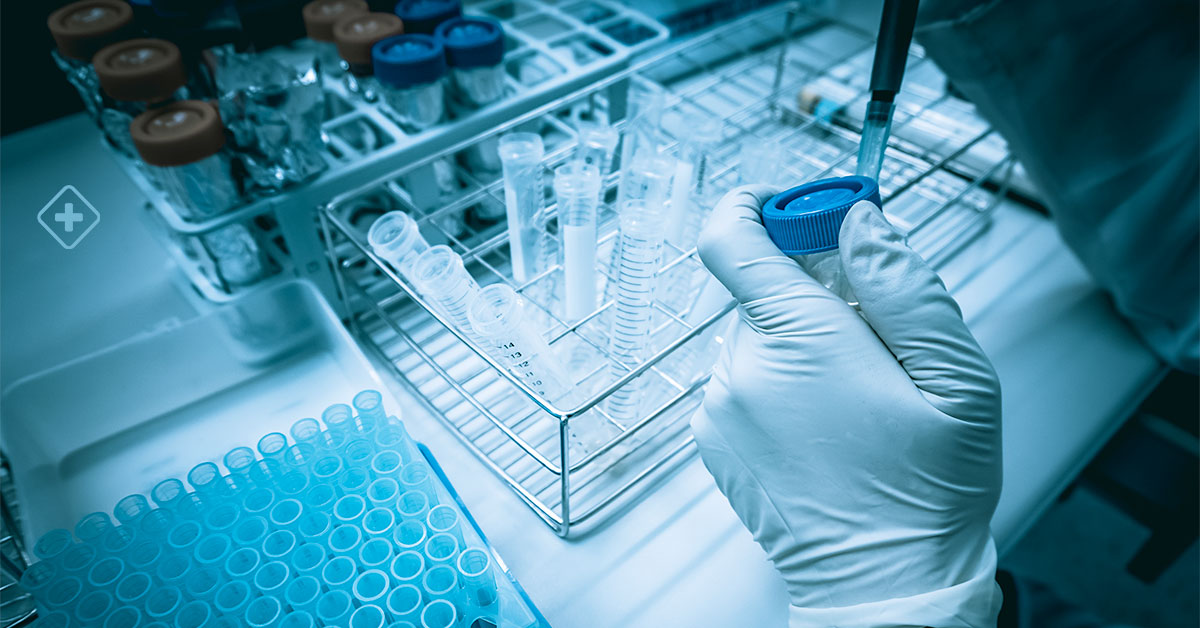
Prostate-Specific Antigen (PSA)
The level of PSA in the blood can provide valuable information about prostate health.

Everything You Need to Know
What is a Prostate-Specific Antigen (PSA)?
Prostate-specific antigen (PSA) is a protein produced by both normal and malignant cells of the prostate gland, a small gland located below the bladder in men. PSA's primary function is to help maintain semen in its liquid state. Although PSA is found in large amounts of semen, it can also be found in small quantities in the blood.
The level of PSA in the blood can provide valuable information about prostate health. An elevated PSA level can indicate various conditions, including prostate cancer, benign prostatic hyperplasia (BPH), and prostatitis (inflammation of the prostate). However, not all men with elevated PSA levels have cancer, making it crucial for a specialized Urologist to interpret the results.
Why do I need the Prostate-Specific Antigen (PSA) test?
The PSA test is fundamental for the early detection of prostate cancer, which is the second leading cause of cancer death in men after lung cancer. Early detection through PSA testing can identify cancer before it spreads beyond the prostate when it is still highly treatable.
In addition to prostate cancer, the PSA test can detect other prostate conditions. Benign prostatic hyperplasia (BPH) is a common condition in older men, where the prostate enlarges and can cause urinary problems. Prostatitis, or inflammation of the prostate, can also raise PSA levels and require medical treatment. Therefore, the PSA test is an integral tool for maintaining prostate health and preventing serious complications.
How often should I have the Prostate-Specific Antigen (PSA) test, and at what age should I start?
Recommendations for the frequency of PSA testing vary according to health guidelines and personal medical history. Generally, it is recommended that men start PSA testing at age 50. However, those at higher risk of prostate cancer, such as African American men or those with a family history of prostate cancer, should consider starting at age 45.
Some experts suggest beginning testing at age 40 for those with even higher risk factors. The frequency of PSA testing depends on initial levels and clinical findings. If PSA levels are low, testing every two years may be sufficient. In cases of higher or fluctuating levels, annual testing may be necessary.
The PSA test is included in several of our Check-Up Packages. An annual medical check-up is advisable to confirm good health or to prevent diseases promptly.
Benefits of the PSA Test
The PSA test offers several significant benefits:
-
Early Detection of Prostate Cancer: Identifying cancer in its early stages significantly improves treatment options and survival rates. Early diagnosis allows for less invasive and more effective treatments.
-
Monitoring Prostate Health: The PSA test detects cancer and helps monitor other conditions, such as BPH and prostatitis. This allows for more precise and personalized management of prostate health.
-
Prevention and Surveillance: Regular testing allows for continuous monitoring of prostate health, facilitating the prevention and timely treatment of any detected abnormalities.
Additionally, the PSA test is simple, quick, and non-invasive, making it an accessible and practical tool for monitoring men's health.
What Does the PSA Test Involve?
The PSA test is a blood test performed in a Clinical Laboratory on an outpatient basis. During the procedure, a small blood sample is taken from the arm. This sample is sent to a laboratory where the amount of PSA in the blood is measured.
PSA levels can vary according to age and other individual factors. For example, they tend to increase with age and can be influenced by prostate size, recent sexual activity, urinary tract infections, and specific medical procedures. Therefore, a Urologist needs to analyze the results, considering all these factors, to determine if additional tests or treatments are required.
Proper preparation for the PSA test is essential. Some doctors may recommend avoiding sexual activity and intense exercise, especially cycling, a few days before the test, as these activities can affect PSA levels.
PSA Test Results
PSA test results are measured in nanograms per milliliter (ng/mL) of blood. A PSA level below 4 ng/mL is generally considered normal. However, PSA levels can be lower in younger men and increase with age.
-
PSA between 4 and 10 ng/mL: This range is considered intermediate and may indicate a moderate risk of prostate cancer. Approximately 25% of men with PSA in this range have prostate cancer.
-
PSA above 10 ng/mL: A PSA level in this range suggests a higher risk of prostate cancer. Approximately 50% of men with PSA above 10 ng/mL have prostate cancer.
However, elevated PSA levels do not always indicate cancer. Other conditions, such as BPH or prostatitis, can raise PSA levels. Therefore, the results must be evaluated by a Urologist, who may recommend additional tests, such as a prostate biopsy, if necessary.
Get the Prostate-Specific Antigen (PSA) Test at BlueNetHospitals
At the BlueNetHospitals Clinical Laboratory, we offer the PSA test as part of our Check-Up Packages for Men, or you can request this test specifically if that is the lab test you need. Our Urology specialists are committed to your health and well-being, providing the personalized care you need.
By having the PSA test at BlueNetHospitals, you can be assured of receiving high-quality and reliable service.
Don't wait any longer, and schedule your appointment for the PSA test. Prevention is health. Take care of yourself and your well-being with the help of BlueNetHospitals.
BlueNetHospitals
BlueNet Hospitals Blue Net Hospitals
Health Library
Urology

Understanding Andropause: A Complete Guide
Andropause is primarily the result of a decrease in testosterone production
Hyperplasia
Hyperplasia is the increase in the production of cells in a healthy organ or tissue.
Male Infertility
Infertility occurs due to reduced sperm production, abnormal sperm function, or blockage that prevents sperm release.
Ureteroscopy
Before, During & After
- Do You Need an Appointment with a Specialist?
- call us
- write us
- let's talk





